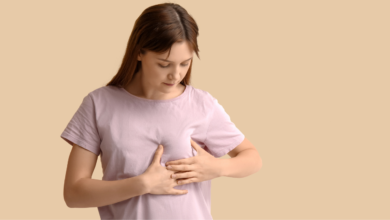Alternative Therapies for PCOS: Exploring Natural Options
Natural Therapies for PCOS: Exploring Your Options

While conventional medical treatments are often the first line of defense for PCOS, some women explore alternative therapies to manage their symptoms. Here’s a look at some of these options, along with their potential benefits and risks:
Herbal Remedies
Several herbs have been traditionally used to address hormonal imbalances and PCOS symptoms. Some of the more commonly studied herbs include:
- Inositol: This naturally occurring sugar is involved in insulin signaling and may improve insulin sensitivity, ovulation, and menstrual regularity.
- Cinnamon: May improve insulin sensitivity and regulate menstrual cycles.
- Vitex agnus-castus (Chasteberry): May help regulate menstrual cycles and improve ovulation by affecting prolactin levels.
- Licorice root: May have anti-androgen effects and improve hormonal balance.
Potential Benefits:
- May offer some symptom relief for some women.
- May be used in conjunction with conventional treatments.
Potential Risks:
- Lack of regulation: Herbal supplements are not regulated by the FDA, so quality and potency can vary.
- Interactions with medications: Herbs can interact with medications, so it’s important to discuss their use with your doctor.
- Limited scientific evidence: While some studies suggest potential benefits, more research is needed to confirm the effectiveness of many herbal remedies for PCOS.
Acupuncture
Acupuncture is a traditional Chinese medicine technique that involves inserting thin needles into specific points on the body. Some studies suggest that acupuncture may help with:
- Improving insulin sensitivity.
- Regulating menstrual cycles.
- Reducing androgen levels.
- Reducing stress.
Potential Benefits:
- May offer some symptom relief for some women.
- Generally considered safe when performed by a qualified practitioner.
Potential Risks:
- Minor bruising or bleeding at the insertion sites.
- Rarely, more serious complications such as infection or organ puncture.
Causes of PCOS
- Insulin resistance.
- Hormonal imbalances.
- Low-grade inflammation.
- Genetics.
PCOS Symptoms
Physical Symptoms:
- Menstrual irregularities.
- Hirsutism.
- Acne.
- Weight gain or difficulty losing weight.
- Hair loss.
- Skin problems.
- Polycystic ovaries.
- Infertility.
Emotional Symptoms:
- Mood swings.
- Anxiety.
- Depression.
- Body image issues.
The Role of Diet in PCOS
- Focus on whole foods.
- Prioritize complex carbohydrates.
- Include lean protein.
- Choose healthy fats.
- Limit processed foods, sugary drinks, and refined carbohydrates.
- Consider a low glycemic index (GI) diet.
- Increase fiber intake.
- Consume anti-inflammatory foods.



